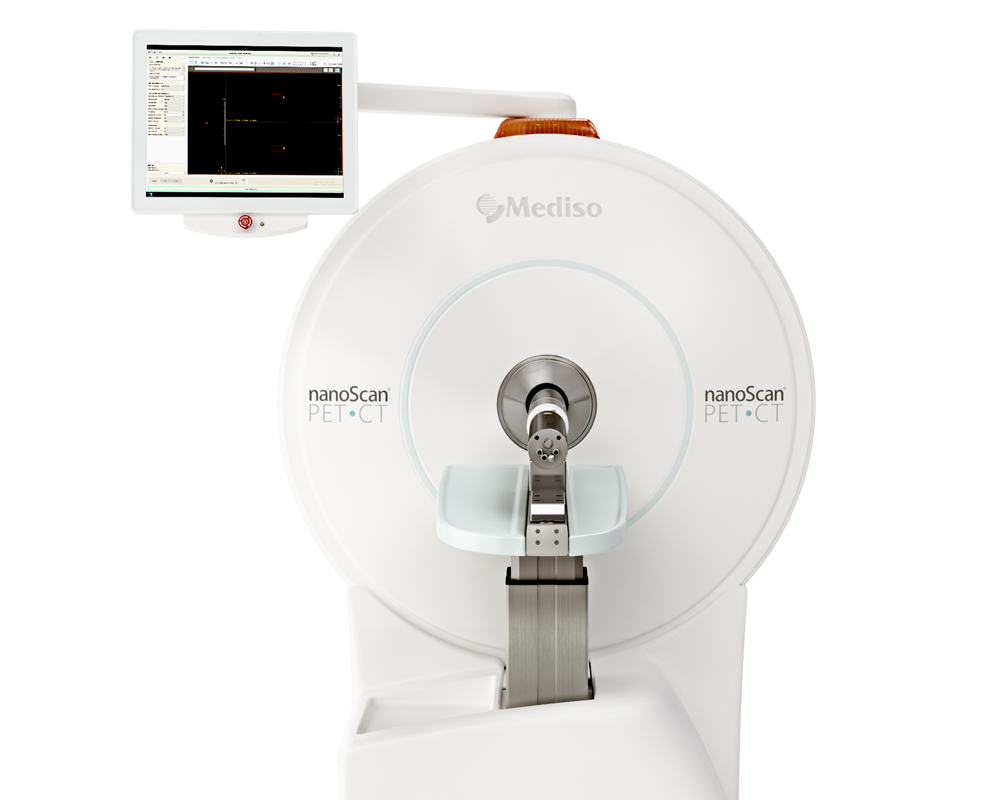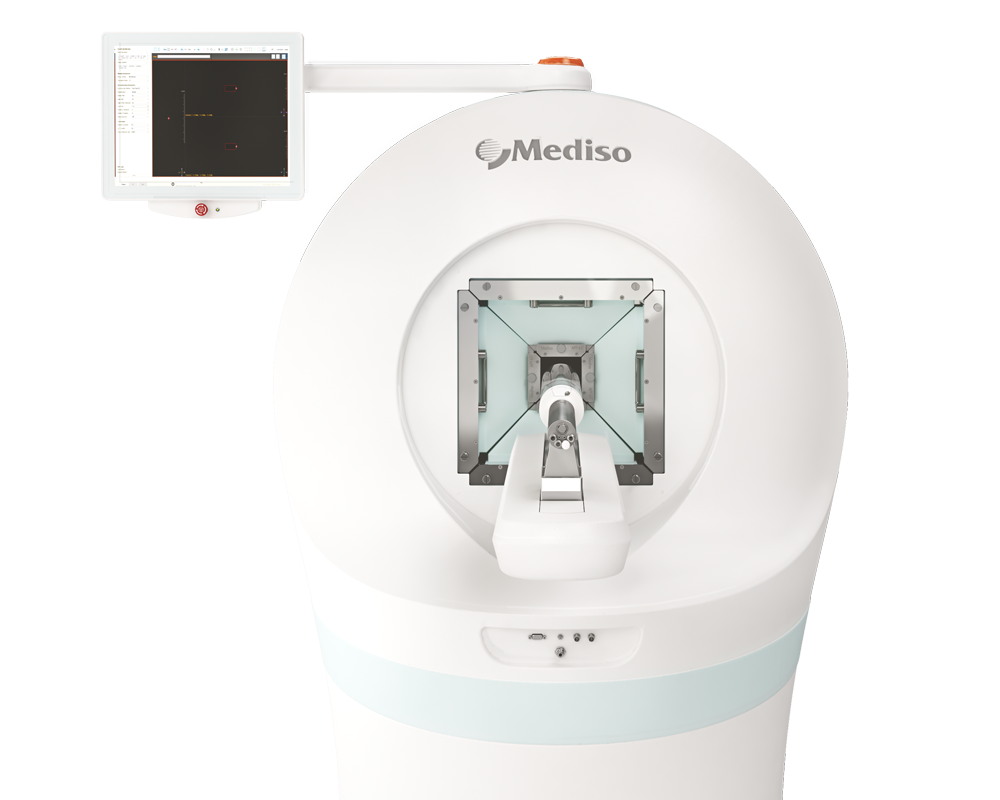Preclinical investigation of [149Tb]Tb-DOTATATE and [149Tb]Tb-DOTA-LM3 for tumor-targeted alpha therapy
2025.01.02.
Ana Katrina Mapanao et al, European Journal of Nuclear Medicine and Molecular Imaging, 2025
Summary
Terbium-149 (Tb) is a short-lived α-emitting radionuclide with potential applications in tumor-targeted therapy. This study aimed to evaluate the therapeutic potential of Tb in combination with the somatostatin receptor (SSTR) agonist DOTATATE and the SSTR antagonist DOTA-LM3. The efficacy of the radiopeptides was assessed both in vitro and in vivo. Terbium-149 was produced at ISOLDE/CERN and purified at the Paul Scherrer Institute. Radiolabeling of somatostatin analogues with [Tb]TbCl was performed under standard conditions at pH 4.5. The effects of [Tb]Tb-DOTATATE and [Tb]Tb-DOTA-LM3 were analyzed on SSTR-positive AR42J rat pancreatic tumor cells using MTT viability and colony-forming survival assays after 16–18 hours of exposure. DNA damage was assessed via immunofluorescence imaging of γ-H2A.X and 53BP1. Therapy studies were conducted in AR42J tumor-bearing mice injected with 1 × 5 MBq or 2 × 5 MBq of the respective radiopeptides. The tolerability of doses up to 40 MBq of [Tb]Tb-DOTATATE or [Tb]Tb-DOTA-LM3 was evaluated in immunocompetent, non-tumor-bearing mice with a focus on potential adverse effects on bone marrow and kidney function.
Results from nanoScan® PET/CT
Radiolabeling of the peptides was successfully achieved with molar activities of up to 20 MBq/nmol and a radiochemical purity of ≥98%. The viability of AR42J cells decreased in an activity-dependent manner, with [Tb]Tb-DOTA-LM3 showing a slightly higher potency than [Tb]Tb-DOTATATE (EC: 0.5 vs. 1.2 kBq/mL). Both compounds induced comparable γ-H2A.X and 53BP1 foci, indicating DNA damage in tumor cells. In tumor-bearing mice, a single injection of 5 MBq led to median survival times of 16.5 days and 19 days for [Tb]Tb-DOTATATE and [Tb]Tb-DOTA-LM3, respectively, compared to 8 days in untreated controls. Administration of 2 × 5 MBq further extended survival to 30 and 29 days, respectively. Hematological parameters and blood plasma biomarkers in treated non-tumor-bearing mice remained comparable to untreated controls. Renal function, assessed by [Tc]Tc-DMSA uptake, was unaffected across all groups.

Conclusion
Terbium-149-based radiopeptides significantly decreased tumor cell viability in vitro and suppressed tumor growth in mice, with no major adverse effects observed, regardless of the use of an SSTR agonist or antagonist. Imaging results obtained using the Mediso nanoScan® PET/CT system further supported these findings, providing clear visualization of tumor targeting and distribution of the radiopeptides. These results support further preclinical exploration of Tb for targeted radionuclide therapy in combination with other tumor-targeting agents.
Full article on Springer Nature
Hogyan segíthetünk Önnek?
További termékinformációkért, vagy támogatásért keresse szakértőinket!
Vegye fel a kapcsolatot
